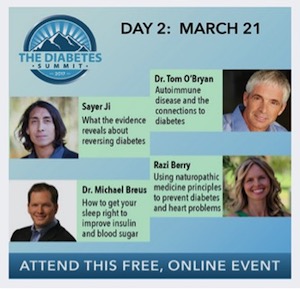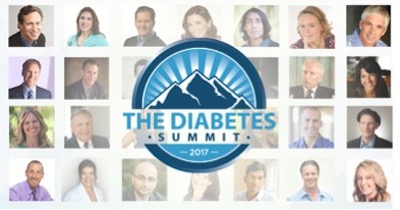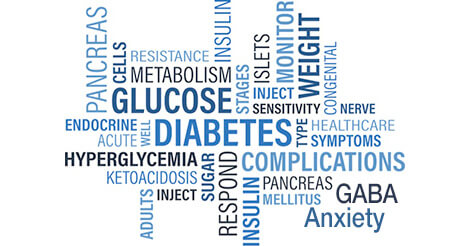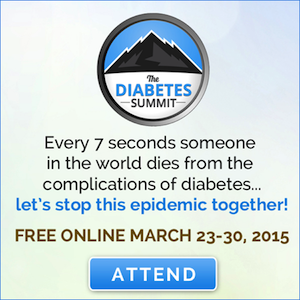
Anxiety, phenibut, toxins, cold showers for detox and more. All of this and more is being covered on the upcoming online Diabetes Summit.
Starting Monday March 20th
I’m really pleased to be a speaker on this summit this year. I cover the anxiety diabetes connection. Anxiety is very common in diabetes – some research shows it’s as high as 25%, and women with diabetes are twice as likely to be affected with anxiety and depression. I also cover how and how GABA helps reduce physical anxiety AND how new research shows GABA is also a promising treatment for diabetes!
Dr. Mowll asked me about using phenibut instead of GABA:
I’ve seen a number of papers that talk about tolerance. I’ve talked to practitioners who’ve said they’ll rotate. They’ll have people be on Phenibut for five days, two days off. And I’ve seen some really scary drug forums where people are using Phenibut as a sort of mood enhancing and performance enhancing drug. They are using very high doses and there are protocols on how to safely taper off Phenibut.
So when I see things like that it concerns me. I’ve had a handful of people, who’ve had some pretty bad side effects from Phenibut. So with someone who’s going through anxiety I just don’t want to add anything else into the mix that may cause problems.
The concern is it does seem to work really well for anxiety and sleep, so that’s why I think a lot of practitioners are drawn to using it. And it may be that they’re not recommending the GABA/ Gamma Amino Butyric Acid sublingually. And they may not be doing a trial to find the optimal dose [so that’s why they are not seeing the results they’d hope to see]. So I would steer clear of phenibut.
We also cover the following (all relevant if you have diabetes AND if you don’t have diabetes):
- doing a GABA trial and the blood brain barrier controversy
- benzodiazepine tapers and nutritional support during a taper
- rooibos tea for metabolic support and adrenal health
On day 2 of the summit, Razi Berry shares this about the toxins in our environment and the impacts they have on our health:
Out of the 80,000 chemicals that we have in our world, we have barely studied any of them. A couple presidents ago, the Environment Protection Agency was supposed to study the first 300 of these 80,000 chemicals. And so far they’ve only studied one, which is BPA. And BPA is all around us
She had to get rid of the toxins in her environment to help her fibromyalgia and chronic fatigue.
I had to stop using the body sprays that I love from Bath and Body, and the perfumes
I got rid of everything fragrant. And I didn’t use essential oils at first either because you still want to use them judiciously and in the right way. So I switched to everything unscented. And I found a lot about beeswax candles. Beeswax candles are so not only beautiful, and they have this honey like scent to them, but they actually neutralize odors and toxins in the air. They don’t just cover it up. So you actually can clean the air by burning beeswax candles. For centuries churches could not burn tallow or paraffin. They could only burn beeswax.
She covers tons of other everyday toxins we are exposed to and how we can safely avoid them. And then importantly, how we can detoxify from these toxins. One approach she covers is hot and cold showers or hydrotherapy (very powerful and very easy to do at home):
Hydrotherapy is a really old technique. It became really popular in the last turn of the century, the late 1800s, early 1900s. And it’s this use of water and/or temperature to help prime your body to get rid of toxins.
So one of the ways that you can do hydrotherapy at home is through what’s called a constitutional hydrotherapy shower. And it’s basically taking a hot and cold shower where you alternate. You start with the water as hot as you possibly can handle it. And you do that for like 12 seconds. Then you turn it to as cold as you can take it.
And the first switch from hot to cold is the most important because it really creates this pump in your lymphatic system, the hot, cold, hot, cold, and really helps to move toxins through your body so it can be eliminated by your kidneys, by your liver, through your respiration.
As you can see there’s plenty to learn from these experts!
Here are just a few of the topics being covered (general topics and applicable if you have diabetes):
- How food allergens can trigger blood sugar problems, and how to detoxify the body safely
- Understanding the stress continuum and how children trauma, adverse life events, and daily stressors can lead to diabetes (all of this is applicable to any health condition)
- Natural strategies to balance blood sugar including new supplement recommendations, essential oils, and using food as medicine
- Breaking down various eating strategies including the ketogenic diet (vegan diets and raw food diets are also addressed but I must add that I don’t endorse this way of eating if you do have anxiety)
- Menopause and blood sugar issues (insulin, cortisol and oxytocin)
- How to get your sleep right to balance insulin and blood sugar
And some topics taking a deeper diver into very specific diabetes areas (if you have type 1 or type 2 diabetes):
- Developing a deeper understanding of peripheral neuropathy – how to test for it and how to treat it, naturally and effectively
- Important strategies for those dealing with type 1 diabetes in themselves or a child
- Autoimmunity and diabetes
I hope you’ll join us to learn from these experts on the online Diabetes Summit. My friend and diabetes expert, Dr. Brian Mowll, is hosting this life-changing event for the fourth year, and this year’s event looks amazing.
You can register for this online event here.
Feel free to ask questions in the comments below.




